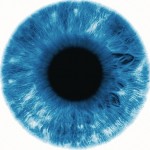
The press release from NICE says that:
Quality standards are a set of specific, concise statements and associated measures [that] set out aspirational, but achievable, markers of high-quality, cost-effective patient care, covering the treatment and prevention of different diseases and conditions.
NICE have already published quality standards on dementia and depression in adults and they have now added to the mental health conditions that are covered by publishing a new quality standard on alcohol misuse, which defines clinical best practice in this area. It provides specific, concise quality statements and measures to provide the public, health and social care professionals, commissioners and service providers with definitions of high-quality care.
Here are the 13 quality statements from the publication:
- Health and social care staff receive alcohol awareness training that promotes respectful, non-judgmental care of people who misuse alcohol.
- Health and social care staff opportunistically carry out screening and brief interventions for hazardous and harmful drinking as an integral part of practice.
- People who may benefit from specialist assessment or treatment for alcohol misuse are offered referral to specialist alcohol services and are able to access specialist alcohol treatment.
- People accessing specialist alcohol services receive assessments and interventions delivered by appropriately trained and competent specialist staff.
- Adults accessing specialist alcohol services for alcohol misuse receive a comprehensive assessment that includes the use of validated measures.
- Children and young people accessing specialist services for alcohol use receive a comprehensive assessment that includes the use of validated measures.
- Families and carers of people who misuse alcohol have their own needs identified, including those associated with risk of harm, and are offered information and support.
- People needing medically assisted alcohol withdrawal are offered treatment within the setting most appropriate to their age, the severity of alcohol dependence, their social support and the presence of any physical or psychiatric comorbidities.
- People needing medically assisted alcohol withdrawal receive medication using drug regimens appropriate to the setting in which the withdrawal is managed in accordance with NICE guidance.
- People with suspected, or at high risk of developing, Wernicke’s encephalopathy are offered thiamine in accordance with NICE guidance.
- Adults who misuse alcohol are offered evidence-based psychological interventions, and those with alcohol dependence that is moderate or severe can in addition access relapse prevention medication in accordance with NICE guidance.
- Children and young people accessing specialist services for alcohol use are offered individual cognitive behavioural therapy, or if they have significant comorbidities or limited social support, a multicomponent programme of care including family or systems therapy.
- People receiving specialist treatment for alcohol misuse have regular treatment outcome reviews, which are used to plan subsequent care.
Links
- Alcohol dependence and harmful alcohol use quality standard (PDF). NICE, Aug 2011.
- Services for the identification and treatment of hazardous drinking, harmful drinking and alcohol dependence in children, young people and adults: commissioning guide (PDF). NICE, Aug 2011.
- Alcohol services: commissioning and benchmarking tool (XLS). NICE, Aug 2011.
- Alcohol-use disorders: diagnosis, assessment and management of harmful drinking and alcohol dependence (PDF). NICE, Feb 2011.

I have just been employed as a Young Persons Wellbeing Counsellor, I am working with young people between the age of 18-25 with alcohol substance misuse challenges. This information is very useful to me as I am famliarising myself with all aspects of alcohol. If you have any other information that you feel may be of use to me could you please forward it on.
Many thanks
Norma